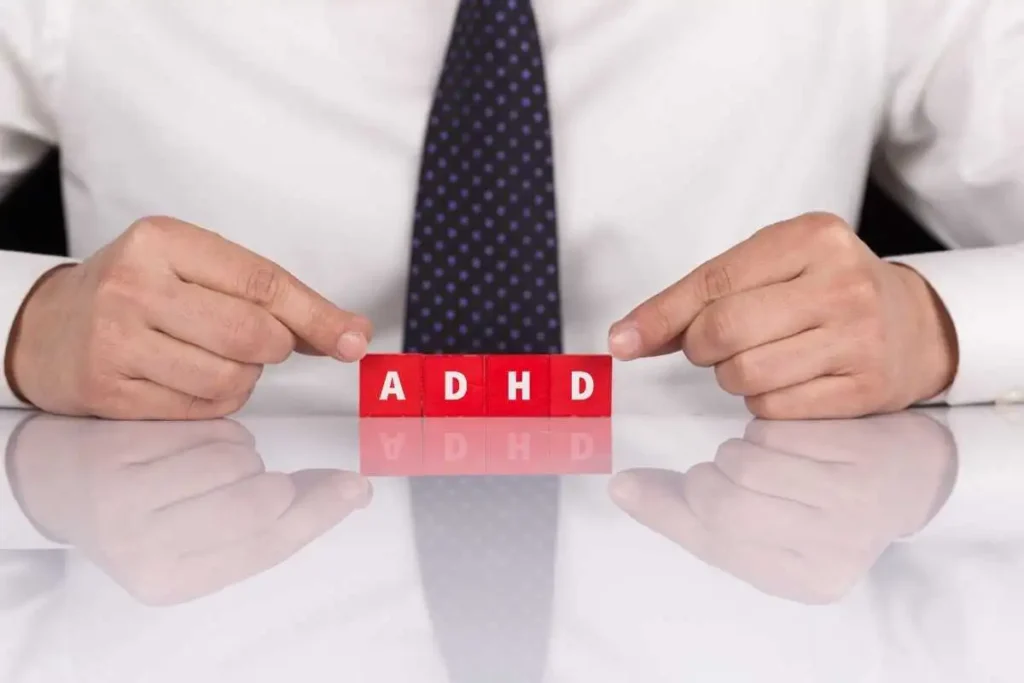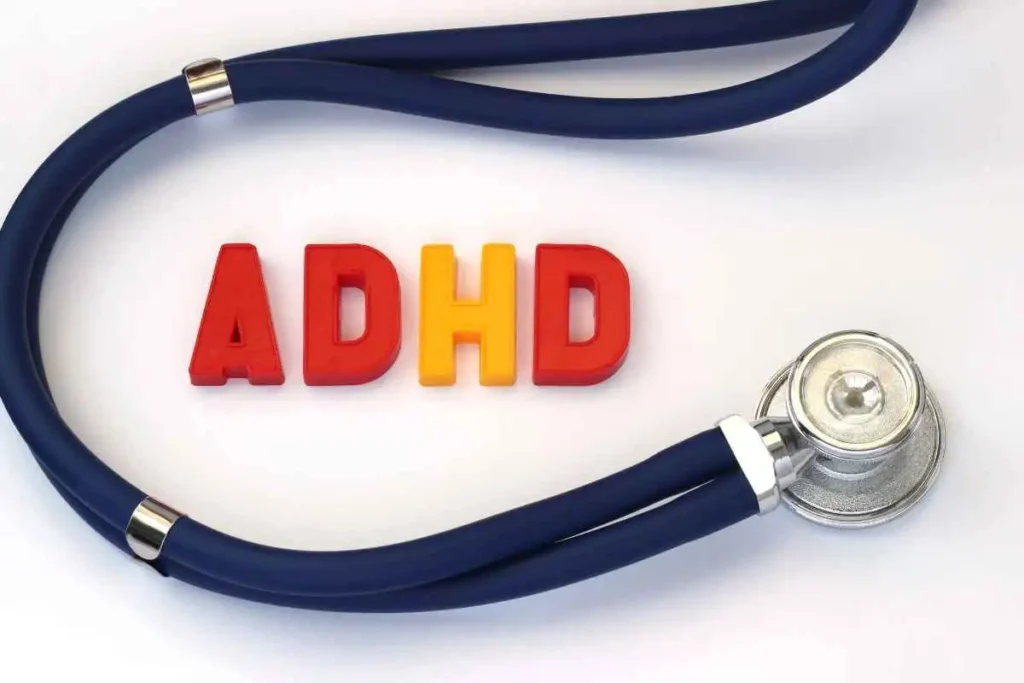Attention Deficit Hyperactivity Disorder (ADHD) is a common neurodevelopmental disorder affecting both children and adults. It is characterized by symptoms of inattention, hyperactivity, and impulsivity.
According to the Centers for Disease Control and Prevention (CDC), approximately 6.1 million children in the United States have been diagnosed with ADHD, highlighting its significant prevalence among young individuals. Furthermore, ADHD continues to affect many into adulthood, with an estimated 4.4% of adults experiencing this condition.
The importance of a timely diagnosis and appropriate treatment cannot be overstated, as these steps are crucial in managing symptoms and improving quality of life. Early intervention can lead to better academic performance, enhanced social skills, and improved overall well-being. However, the process of diagnosing ADHD is not without its challenges, particularly when it comes to the financial aspect.
Families often face a substantial financial burden when seeking an ADHD diagnosis and subsequent treatment. Costs can quickly add up, from initial consultations and psychological evaluations to ongoing therapy and medication management.
This financial strain is further complicated by the complexities of insurance coverage for ADHD testing and treatment. Many families find themselves navigating a maze of insurance policies, eligibility criteria, and coverage limitations, all while striving to provide the best possible care for their loved ones.
ADHD Diagnosis
Attention Deficit Hyperactivity Disorder (ADHD) is a mental health condition characterized by a persistent pattern of inattention, hyperactivity, and impulsivity that interferes with functioning or development. Common ADHD symptoms include:
- Difficulty sustaining attention in tasks or play activities.
- Frequent fidgeting or tapping.
- Excessive talking and interrupting.
- Trouble organizing tasks and activities.
The diagnostic process for ADHD is comprehensive and involves multiple steps to ensure an accurate diagnosis. This process often includes:
- Clinical Interviews: Conducted with both the patient and family members to gather a detailed history.
- Behavioral Assessments: Observations and standardized rating scales completed by parents, teachers, or other health professionals.
- Psychological Evaluations: Tests to rule out other mental health conditions and assess cognitive functioning.
Delaying an ADHD diagnosis can have significant emotional and financial impacts on individuals and their families. Emotionally, the lack of a diagnosis can lead to increased frustration, anxiety, and even depression due to unmanaged symptoms.
Financially, the costs associated with untreated ADHD can escalate, as individuals may require more intensive intervention later on, and families may face additional expenses due to academic or behavioral challenges.
The Cost of ADHD Testing
Embarking on the journey to an accurate ADHD diagnosis involves several assessments that can be costly. Here’s a breakdown of the typical expenses associated with ADHD testing:
- Initial Consultations: These typically range from $200 to $500, depending on the healthcare provider and location.
- Psychological Evaluations: Comprehensive evaluations, which include cognitive and behavioral assessments, can cost between $500 and $2,500.
- Follow-Up Visits: These may add another $100 to $200 per session.
According to recent data, families often face average costs of about $1,000 to $3,000 for a full ADHD diagnosis. These figures can fluctuate based on several factors such as geographic location, the complexity of the case, and the types of assessments required.
| Expense Category | Cost Range (USD) | Insurance Coverage |
|---|---|---|
| Initial Consultations | $200 – $500 | Partial or Full |
| Psychological Evaluations | $500 – $2,500 | Varies by plan |
| Follow-Up Visits | $100 – $200 | Often Covered |
The out-of-pocket costs can be daunting for many families without adequate health insurance coverage. While some insurance plans cover a portion of these expenses, it’s essential for families to verify their plan’s specific terms.
In some cases, families might find themselves paying entirely out-of-pocket if their insurance company deems the tests as not medically necessary.
Insurance Coverage for ADHD Testing
Understanding health insurance coverage for ADHD testing can significantly influence the financial burden on families. Here’s an exploration of how typical insurance policies handle ADHD assessments:
Most insurance plans, including well-known providers like Blue Cross Blue Shield, approach ADHD testing with specific criteria in mind:
- Medical Necessity: The testing must be deemed medically necessary by a healthcare provider, which often involves a referral from a primary care physician or psychiatrist.
- Age Restrictions: Some insurance plans specify coverage only for certain age groups, often focusing on children and adolescents.
Despite these provisions, there are several common coverage limitations and exclusions that families should be mindful of:
- Out-of-Network Providers: Choosing a healthcare provider outside the insurance network can lead to significantly higher out-of-pocket expenses, as these costs may not be covered.
- Pre-authorization Requirements: Some insurance companies require pre-authorization before covering any ADHD-related assessments or treatments.
- Exclusions: Certain plans might exclude coverage for specific tests, deeming them experimental or not essential.
The insurance process can be complex, so it’s crucial for families to thoroughly review their insurance plans and speak directly with their insurance provider to understand the specifics of their coverage.
Treatment Options for ADHD
When it comes to managing ADHD, there are several treatment options available, each tailored to address different ADHD symptoms and individual needs. Here’s a comprehensive look at the various approaches:
- Medication: The most common treatment involves the use of stimulant medications like Adderall and Ritalin, as well as non-stimulant ADHD medications such as Strattera. These medications can significantly reduce symptoms in approximately 70-80% of patients, according to the American Academy of Pediatrics.
- Therapy: Options such as behavioral therapy, online therapy services, and group therapy offer valuable mental health support. These therapies focus on developing skills to manage behaviors and improve focus.
- Behavioral Interventions: These include techniques like cognitive-behavioral therapy (CBT) and parent training, which help in modifying behavior patterns and enhancing organizational skills.
The cost of ADHD treatments can vary widely:
| Treatment Type | Estimated Cost Range |
|---|---|
| Medication | $30 – $300 per month, depending on the medication and insurance coverage |
| Therapy Sessions | $100 – $200 per session, potentially reduced with insurance coverage or sliding scale fees |
| Behavioral Interventions | $200 – $500 for comprehensive programs, often covered partially by insurance |
According to research, combining medication with behavioral therapy is often more effective than either treatment alone, leading to better outcomes for individuals with ADHD.
Exploring affordable options, such as Talkspace for online therapy, or visiting community health centers, can help reduce costs and provide access to essential mental health services.
Insurance Coverage for ADHD Treatment
Understanding insurance coverage for ADHD treatment can be complex, as it often varies depending on the type of treatment and the specific insurance plan. Let’s delve into how coverage can differ:
- Medications: While many insurance plans cover stimulant and non-stimulant ADHD medications, coverage levels can fluctuate. Plans like Blue Cross Blue Shield often provide options, but it’s crucial to check whether your specific medication is included in the formulary.
- Therapy: Coverage for therapy, including behavioral therapy and online therapy services, can be limited or require high co-pays. Some families find that out-of-network providers offer better care, but this typically increases out-of-pocket expenses.
- Behavioral Interventions: These may be covered under mental health services, but approvals often depend on demonstrating medical necessity and receiving referrals from accredited professionals.
Families often face challenges in securing coverage for treatment. These include navigating the insurance process, dealing with coverage limitations, and understanding the fine print of their insurance company’s policy.
Case Study: Consider the Johnson family, who struggled to get coverage for their son’s ADHD therapy sessions. Initially, their insurance provider denied the claim, citing that the therapy was “not medically necessary.” After persistent communication and providing thorough documentation from their healthcare provider, the family managed to secure partial coverage. Their experience underscores the importance of advocating for mental health care and being persistent with insurance companies.
Common Misconceptions About ADHD Insurance Coverage
When it comes to ADHD insurance coverage, several myths can lead to confusion and frustration. Let’s address some of these common misconceptions:
Myth 1: Insurance won’t cover any ADHD treatment.
While some plans have limitations, most health insurance policies do cover various ADHD treatments, including medications and therapy. It’s essential to understand the specifics of your insurance plan and what it entails.
Myth 2: Testing and treatment coverage are the same.
There’s a significant difference between coverage for an ADHD assessment and ongoing treatment. Testing might be covered under diagnostic services, while treatment may fall under mental health services. Clarifying these distinctions with your insurance provider is crucial.
To further dispel these myths, consider this expert insight from Dr. Jane Doe, a leading psychiatrist specializing in ADHD: “Many families are surprised to find that their insurance plans offer a variety of options for ADHD testing and treatment. The key is to be informed and proactive in discussing these with your provider.”
Tips for Advocating for ADHD Coverage
Navigating the intricacies of ADHD insurance coverage can be challenging, but with the right approach, families can effectively advocate for the support they need. Here’s a guide on how to make your case with insurance providers:
Practical Steps for Advocacy
- Research Your Policy: Start by thoroughly reviewing your insurance plan to understand what is covered. Look for specific terms related to ADHD assessment and treatment.
- Gather Documentation: Compile all necessary documentation, including medical records, ADHD diagnosis reports, and treatment plans from your healthcare provider. This information will support your case for medical necessity.
- Contact Your Provider: Reach out to your insurance company to discuss your coverage options. Be prepared to explain the benefits of the proposed treatments and why they are essential for managing ADHD symptoms.
Importance of Documentation and Communication
Effective advocacy hinges on clear and comprehensive communication. Maintaining organized records of all interactions with your insurance provider and healthcare professionals is crucial. This includes emails, phone calls, and written correspondence.
Sample Script for Communication
Here’s a sample script to help you communicate effectively with your insurance company:
“Hello, my name is [Your Name], and I’m contacting you regarding coverage for ADHD testing and treatment for [Patient’s Name]. Based on the documentation provided by our healthcare provider, these services are crucial for managing ADHD symptoms effectively. I would like to discuss the available options within our insurance plan and any necessary steps to secure coverage. Thank you for your assistance.”
Conclusion
The journey through the ADHD diagnosis and treatment process is often fraught with financial challenges.
From the initial ADHD assessment to ongoing mental health services, families frequently face significant out-of-pocket expenses due to coverage limitations and eligibility criteria imposed by insurance companies.
The costs can be daunting, but understanding your insurance plan and advocating for coverage can alleviate some of the burden.
We encourage families to actively seek support and resources that are available through community health centers, mental health organizations, and online platforms offering affordable online ADHD treatment. These resources can provide both the financial aid and the emotional support necessary to navigate the complexities of ADHD care.
FAQ Section
Below are some common questions regarding ADHD testing and insurance coverage, along with concise answers to help clarify these complex topics.
Does health insurance cover ADHD testing?
Answer: Coverage varies by insurance plan. Many plans cover ADHD testing if deemed medically necessary. Check with your insurance provider for specific eligibility criteria.
What are the typical costs of ADHD testing without insurance?
Answer: The cost without insurance can range from $100 to $2,500 depending on the provider and the type of assessments required.
Are non-stimulant ADHD medications covered by insurance?
Answer: Some insurance plans do cover non-stimulant ADHD medications, but coverage varies. It’s advisable to confirm with your insurer about specific medication coverage.
Can adults get coverage for ADHD testing?
Answer: Yes, but coverage for adult ADHD testing may vary. Verify with your provider as some plans focus more on pediatric care.
For further insights and detailed information, consider reaching out to your healthcare provider or insurance company. We encourage our readers to reach out with any further inquiries or share their experiences in navigating the complexities of health insurance coverage for ADHD.







